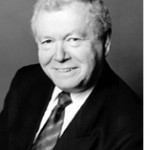By Dow Marmur

JERUSALEM–It’s not the first time that Israel is at odds with the United States over an appropriate response to the nuclear ambitions of a hostile state in the region. Sharing the anger of people across the globe in the wake of Israel’s destruction of Iraq’s nuclear reactor in June 1981, President Reagan suspended the delivery of aircraft to Israel and was said to be considering other punitive measures.
Echoing the official statement announcing the Israeli operation in Iraq that said that “on no account shall we permit an enemy to develop weapons of mass destruction against the people of Israel,” Prime Minister Menachem Begin sent a personal letter to President Ronald Reagan. It read in part:
A million and a half children were poisoned by the Ziklon gas during the Holocaust. Now Israel’s children were about to be poisoned by radioactivity. For two years we have lived in the shadow of the danger awaiting Israel from the nuclear reactor in Iraq. This would have been a new Holocaust. It was prevented by the heroism of our pilots to whom we owe so much.
I don’t think that it’s possible to understand Prime Minister Netanyahu’s preoccupation with the current nuclear threat from Iran and the broad endorsement that his stance enjoys among Israelis without seeing it in the context of Begin’s letter. Even Israel’s parliamentary opposition seems to find it impossible to challenge the Netanyahu’s stance; that’s why it only attacks the way in which he came to annoy President Obama, not that he’s opposed to the Vienna deal.
Even 67 years after its establishment it’s not possible to fathom the significance of the Jewish state without seeing it as a response to the Holocaust. No, the Holocaust didn’t create Israel – modern political Zionism predates the Holocaust by several decades – but the memory of the death of the six million still guides many Israeli decisions across the political divide. It’s particularly potent in the rhetoric of the right-wing. At least in this respect, Netanyahu is Begin’s heir.
Those who try to delve behind the rhetoric ask themselves: Which is the greater danger: the Vienna deal or the continuation of the previous situation until, if at all, Iran is so burdened by the sanctions and the isolation that it’ll yield to the progressive forces within it and gives up all nuclear ambitions?
The United States Administration seems to believe that the latter alternative is “a fantasy.” The Government of Israel believes that it’s a realistic and more effective way than what has been agreed upon. Ordinary folk can only decide on the basis of trust. Shall we trust the President of the United States or the Prime Minister of the State of Israel?
Those of us who find it difficult to trust either, or any other politician for that matter, are in a real bind. All that’s left for us is to hold our breaths and hope that the optimistic-realistic assessment by Obama and his spokespersons will be vindicated. But as Jews who still live in the shadow of the Holocaust we may find it impossible to ignore Begin’s words to Reagan and their echoes in Netanyahu’s statements to the world.
My head may be with Obama but my guts, alas, are with Netanyahu.
*
Rabbi Marmur, spiritual leader emeritus of Holy Blossom Temple in Toronto, now resides in Jerusalem. You may comment to him at dow.marmur@sdjewishworld.com